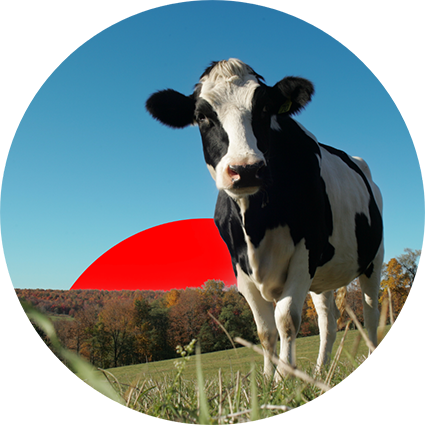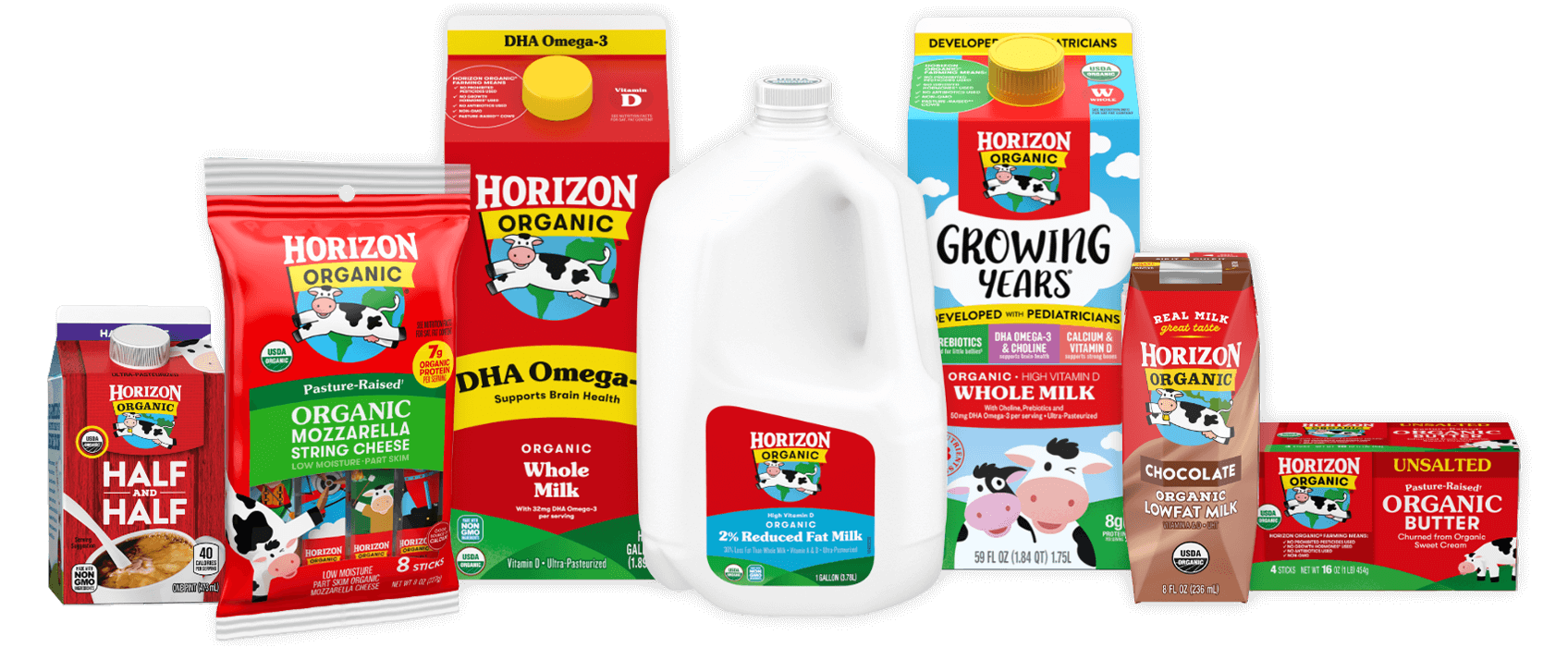
Willow Creek Farm
- 2000 STARTED WITH US
- 120 COWS IN HERD
- 1,100 ACRES
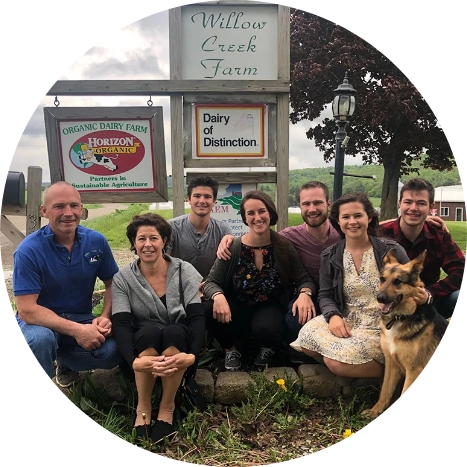
Willow Creek Farm
Deichmann Family
Belmont, NY
- 2000 STARTED WITH US
- 120 COWS IN HERD
- 1,100 ACRES
Willow Creek Farm has always welcomed innovation. It was the first organic dairy in the U.S. to install robotic milkers in 2007. The farm has installed solar panels, LED lighting in the barn, and improved their water quality. The Deichmanns also have a no-till tillage system and are exploring manure management techniques.

Fair Family Farms
- 2007 STARTED WITH US
- 85 COWS IN HERD
- 388 ACRES
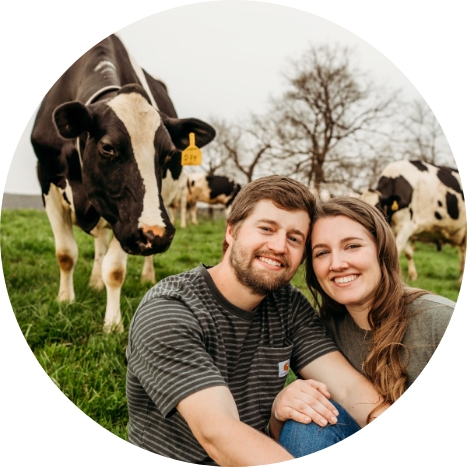
Fair Family Farms
Lucas Waugerman
Manns Choice, PA
- 2007 STARTED WITH US
- 85 COWS IN HERD
- 388 ACRES
Fair Family Farms is a ninth-generation family farm. The farm has been in the same family since 1812. Lucas Waugerman, who runs the farm now, received our HOPE Scholarship three times during his education in agriculture management at Pennsylvania State University. “Being more sufficient; improving ways of working; striving to do things better are critical,” says Lucas. “Being a part of the regen ag journey allows me to quantify areas of efficiency and work on areas that can be improved upon.”

Nature Ridge Organic Dairy
- 2019 STARTED WITH US
- 2,700 COWS IN HERD
- 4,600 ACRES
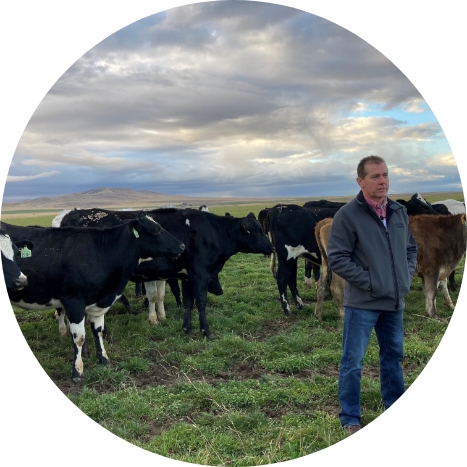
Nature Ridge Organic Dairy
Riley Smith & Kevin Schroeder
American Falls, ID
- 2019 STARTED WITH US
- 2,700 COWS IN HERD
- 4,600 ACRES
Nature Ridge Organic Dairy (NROD for short) is located in an area called the Raft River Basin, which was designated a Critical Groundwater Management Area back in 1963, due to the decline of the flow of the river and the aquifer water levels. To adhere to water conservation efforts, NROD installed a Green Flush Water Recycling System and flow meters that save about 40,000 gallons of water each day. Kevin Schroeder’s two sons, Travis and Tanner, are both past HOPE Scholarship recipients with a passion for bringing their education and skills back to the farm and agricultural community.

Quint-S Farms
- 2010 STARTED WITH US
- 75 COWS IN HERD
- 500 ACRES
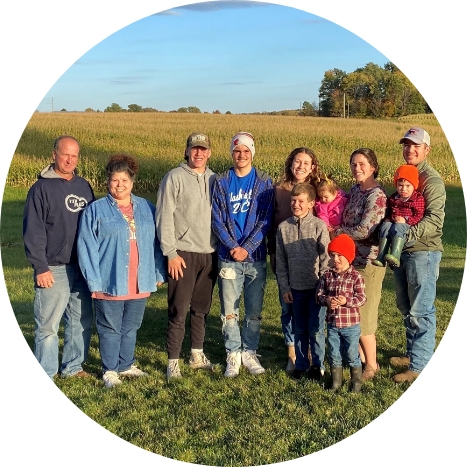
Quint-S Farms
Fred Hartzler
Ashland, OH
- 2010 STARTED WITH US
- 75 COWS IN HERD
- 500 ACRES
The Hartzler family has been farming since John Quincy Adams was president—for eleven generations so far. Fred’s daughter, Shila, is a 4-time HOPE Scholarship Recipient Recipient and is studying public relations and strategic communications to advocate for agriculture and dairy farms at Ashland University. Quint-S Farm takes part in our Regenerative Agriculture Program. “Sustainability means to me to be better stewards to the land and animals. Biodiversity is also a key component of sustainability,” according to Fred.

Fair Hill Farms
- 2017 STARTED WITH US
- 900 COWS IN HERD
- 1,850 ACRES
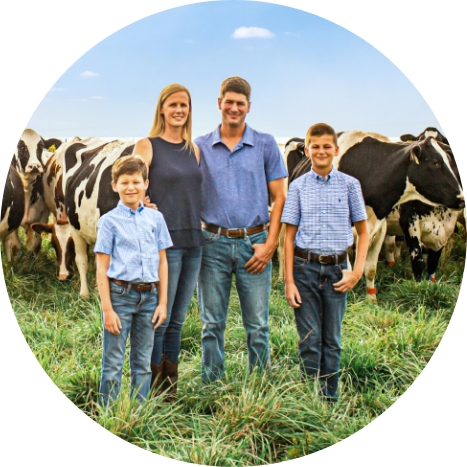
Fair Hill Farms
Matt & Megan Fry
Chestertown, MD
- 2017 STARTED WITH US
- 900 COWS IN HERD
- 1,850 ACRES
The Fry family has been dairying in Maryland for six generations. Fair Hill Farms has prioritized regenerative agriculture practices by investing in new technology for their farm. In late 2019, they purchased a roller crimper, which helps to improve their cover crops and no-tillage efforts. The Frys are experimenting with no-till weed control methods like the weed zapper, which uses an electric current to get rid of weeds.






